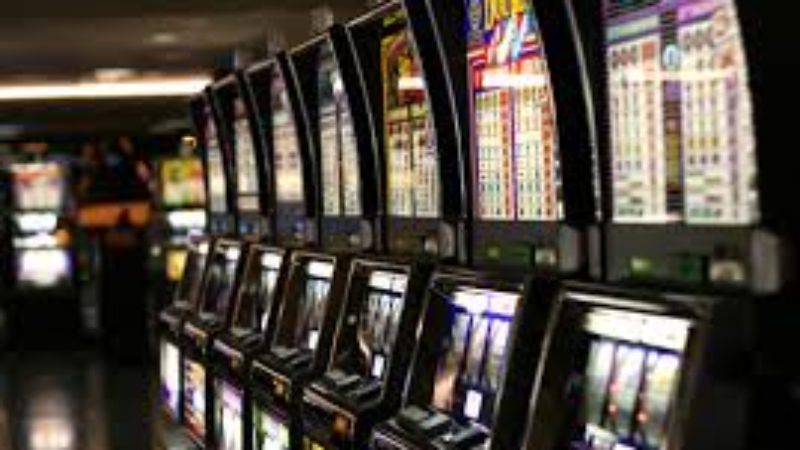Earlier this month, the Culture Secretary Lisa Nandy said in an interview that “gambling brings joy to millions” but “some people in particular” can have their lives ruined by it. The very next day Gambling Commission (GC) new statistics showed 1.4 million UK adults were in the highest gambling harm group, with millions more in at-risk groups and millions of affected others.
Against this backdrop, a Treasury consultation on gambling taxes is expected to inform the Budget on November 26.
The Social Market Foundation (SMF) and the Institute for Public Policy Research (IPPR) both published submissions calling for higher taxes on gambling. The IPPR proposal enables the Gordon Brown plan to reduce poverty by lifting the two-child benefit cap, funded through taxes on gambling, and possibly banks.
READ MORE: TUC poll: Voters will ‘reward’ taxes on wealth, gambling and bank profits
If the Treasury consultation genuinely wanted to merge existing gambling tax rates – an idea first floated under Jeremy Hunt – this was as incompetent as it was unappealing to all sides. But if it was designed to flush out positions on gambling taxes, it was a brilliant manoeuvre.
My own submission through my Campaign for Fairer Gambling (CFG), explains that tax for betting remotely should exceed that for land-based gambling. As some land-based casinos are paying over 40%, it makes no sense to have a remote casino rate lower than 50%. Based on what economists call the “Laffer curve peak” – the point where tax maximises revenue – I estimate the sweet spot to be over 60% for remote gaming and over 40% for remote betting.
But because gambling addiction causes major social and economic harm, the tax rate could justifiably go even higher. Electronic gambling, whether online or on machines, employs few people, has short supply chains, and generates little wider economic benefit. It also escapes VAT. Even more damning, much of the remote sector is offshore, avoiding UK corporate taxes.
This week’s Treasury Select Committee on gambling tax heard some powerful evidence. Theo Bertram, a former No.10 advisor, represented the SMF, and economics expert Carsten Jung appeared for the IPPR. Stewart Kenny, an ex-Paddy Power co-founder, explained how the sector uses the spectre of the black market to oppose increases in tax and regulation.
A report by the intelligence platform YieldSec shows that the UK’s illegal gambling market is mostly made up of under-age gamblers and people who have self-excluded from legal sites. More than 600,000 people have self-excluded from legal remote gambling, above 1% of the adult population, indicating the addictive reality.
It also shows that this black market is dominated by casino content rather than sports betting, contradicting bookmakers’ claims that betting restrictions are driving people to illegal gambling.
Subscribe here to our daily newsletter roundup of Labour news, analysis and comment– and follow us on Bluesky, WhatsApp, X and Facebook.
An analysis by Landman Economics found that Gambling Commission (GC) black market research was weak. The GC work is not seriously comparable to the YieldSec work.
Appearing in opposition to tax increases was Grainne Hurst, CEO of the Betting and Gaming Council (BGC) and Stephen Hodgson, an ex-Entain BGC tax adviser. Entain owns Ladbrokes, Coral and other brands, and Hurst was herself an Entain executive until 2024.
HM Treasury is familiar with Entain, having demanded over £600 million from them for overseas misconduct. Several former executives still face prosecution, including one related to activity in 2024.
Neither the BGC nor Entain have published their Treasury submissions to enable public scrutiny. It says a lot about the sector that its witnesses lacked wider expertise and both have connections with Entain, a company with a history of poor candour with authorities. These witnesses represent a sector that extracts billions from the UK economy every year.
Hurst’s evidence was by all accounts a car crash. She repeatedly denied when pressed that gambling was associated with any social ills, instead saying that all harm was due to individuals.
Treasury Select Committee chair, Dame Meg Hillier MP said she was “frankly flabbergasted” by this response.
Share your thoughts. Contribute on this story or tell your own by writing to our Editor. The best letters every week will be published on the site. Find out how to get your letter published.
Hurst succeeded Michael Dugher, a former Labour MP for Barnsley East who is now the BGC Chair. Dugher remains well connected in Labour circles, raising questions about the gambling lobby’s influence on Labour policy.
Labour’s 2019 manifesto proposed a new Gambling Act, and the 2024 version recognised gambling as a public health issue. Now the party must follow through by acknowledging the leniency the sector has enjoyed and by ensuring the Chancellor applies fair, robust tax increases.
SHARE: If you have anything to share that we should be looking into or publishing about this story – or any other topic involving Labour– contact us (strictly anonymously if you wish) at [email protected].
SUBSCRIBE: Sign up to LabourList’s morning email here for the best briefing on everything Labour, every weekday morning.
DONATE: If you value our work, please chip in a few pounds a week and become one of our supporters, helping sustain and expand our coverage.
PARTNER: If you or your organisation might be interested in partnering with us on sponsored events or projects, email [email protected].
ADVERTISE: If your organisation would like to advertise or run sponsored pieces on LabourList‘s daily newsletter or website, contact our exclusive ad partners Total Politics at [email protected].
Value our free and unique service?
LabourList has more readers than ever before – but we need your support. Our dedicated coverage of Labour’s policies and personalities, internal debates, selections and elections relies on donations from our readers.

